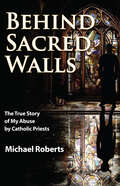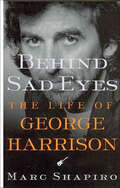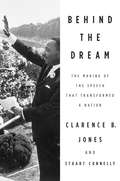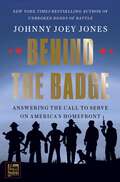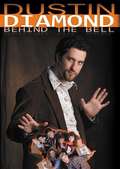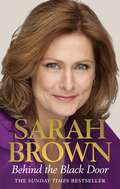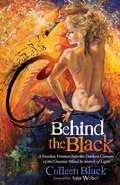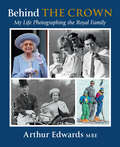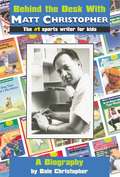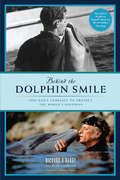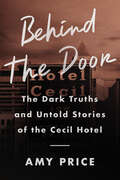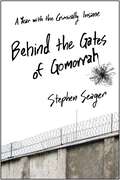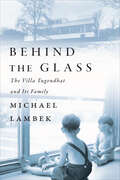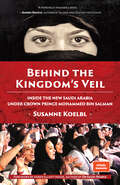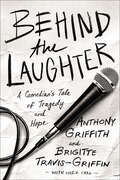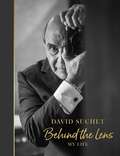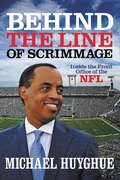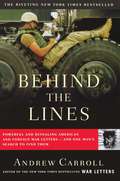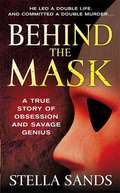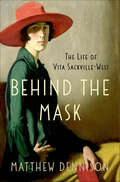- Table View
- List View
Behind Our Eyes 3
by Behind Our EyesIn Behind Our Eyes 3: A Literary Sunburst, the third anthology of its kind, six sections comprised of memoirs, fiction, and poetry share slices of life from the perspectives of those living with disabilities. Most works first appeared in Magnets and Ladders, an online literary journal in which novice and experienced writers with disabilities showcase their work. While unique challenges are incorporated into some of the works, this compilation speaks to universal themes and common experiences, involving loss and grief, adversity and fear, love and passion. Subjects such as life-changing illness and the death of a pet are shared with sensitivity and compassion; some works reminding us that a rainbow is possible only in the aftermath of a storm. Heartbreaking, as well as heartwarming, memoirs recount experiences belonging to military veterans, children of immigrants, and parents in the trenches of child rearing. Witty fiction introduces us to cosmic bowling with aliens, and asks us to envision a sky with two moons. Reflective poems describe braille as "ticklish filigree lace on cardboard paper" and fingerspelling that "perform[s] magic in a cacophony of the palms." In other verse, lyrical imagery paints enchanting portraits of the natural world. To unexpected delight, tantalizing recipes accompany several works; such as those for edible salad bowls, lemon herb bread, cinnamon rolls, and even frozen yogurt pops for golden retrievers named Sammy who "sing the blues." As a part of the community myself, I am reminded that the only thing a deaf woman cannot do is hear, and the only thing a blind man cannot do is see. This engaging collection promises three enriching opportunities: readers are challenged to question outdated notions of disability; invited to appreciate perspectives that differentiate us from one another; and encouraged to embrace the threads that make up the fabric of our collective human experience. Readers, disabled and not, will be inspired to hold up a mirror to their own experiences, and recognize that, reassuringly, we are all in this together. --Kelly Sargent, Creative Nonfiction Editor, The Bookends Review and author of Seeing Voices: Poetry in Motion
Behind Palace Doors: Marriage and Divorce in the House of Windsor
by Nigel Dempster Peter Evans"For three decades, Nigel Dempster, London's top gossip columnist, has chronicled Britain's royal family and been the confidant of several of its members. While others have speculated about the royals' loves and liaisons, their marriages, divorces, and remarriages, Dempster has heard the truth from some of the most highly placed sources in Britain. In Behind Palace Doors, he and investigative journalist Peter Evans present a through-the-keyhole story of the marital woes of the Windsors and their most celebrated members, Prince Charles and Princess Diana." "Behind Palace Doors is an astonishing anatomy of what went wrong and where it will end. The union of Charles and Diana, the authors reveal, was doomed from the start. Soon after the engagement, Charles told his parents he had made a "bloody awful" mistake, and begged to be released, but to no avail. As the marriage faltered, he returned to an old love, Camilla Parker Bowles, whose own husband was philandering. Caught in this sorrowful triangle, Diana changed from naive young girl to angry, vengeful wife. But the major reason the marriage fell apart, we learn, was not Camilla, or even Diana's own relationships with other men, but Diana's destructive tantrums and deep hereditary depressions. In less than two years' time, Dempster has learned, she will liberate herself from the Prince of Wales and his family." "As for Charles's brother Andrew, his marriage to Sarah Ferguson fared no better. Five months pregnant with their second child, she began a close friendship with Texan Steve Wyatt, and later she kept steady company with her "financial advisor" John Bryan. The authors provide the reasons for Sarah's reckless behavior and explain why Andrew remained tolerant for so long." "In this intimate, anecdotal book, Dempster and Evans take the reader inside the private family meeting called to handle the crisis surrounding the "Camillagate" tapes. The authors present the reactions - including actual comments - of the Queen and Prince Philip, the manipulations of the Queen Mother, and the acid recriminations of Princess Anne. They also divulge the wrenching trauma of the Parker Bowles family and describe an extraordinary scene in which Camilla's father dresses down the Prince of Wales." "Revealing, at times even shocking, Behind Palace Doors is nonetheless surprisingly sympathetic. The authors portray the British royals as spoiled, selfish, frequently wanton, yet in the end, supremely human."--BOOK JACKET. Title Summary field provided by Blackwell North America, Inc. All Rights Reserved
Behind Sacred Walls: The True Story of My Abuse by Catholic Priests
by Michael RobertsWhen the Roberts family's favorite priest started inviting himself to dine at their dinner table weekly, they were delighted to oblige. Then, when the priest started inviting their teenaged son, Michael, on day trips, they were even more pleased to see their son developing a close friendship with their beloved priest. What the family did not know was that the priest was grooming Robert for what would become years on ongoing sexual abuse. In Behind Sacred Walls, Michael describes how he fell under the control of the priest, who abused him verbally, emotionally, and sexually. It was, the priest told him, God's will that the teenager satisfy the priests human needs. Even though he was riddled with shame and guilt, Michael saw no way out of the continuing abuse. Most of all, he feared the pain it would cause his parents if they found out. In the end, Roberts tells how he was eventually able to extricate himself from the abusive relationship with the priest. He also relates the years of red tape he encountered with the Catholic Church while seeking justice.
Behind Sad Eyes: The Life of George Harrison
by Marc ShapiroShrouded in a sea of mystery, the elusive George Harrison has long been the most private and enigmatic member of the Beatles. From his hard knock childhood in Liverpool to his ascendance into rock infamy, George Harrison's life has been a torpid ride filled with legendary success and heart crushing defeat. New York Times bestselling author Marc Shapiro sheds new light on this paradoxical rocker, whose reputation for unusual religious practices and drug abuse often rivaled his musical notoriety. A man whose desire was to be free rather than be famous, Harrison's battle against conformity lead him to music making, a soulful and creative expression that would be his ticket to success and the bane of his existence. Behind Sad Eyes is the compelling account of a man who gave the Beatles their lyrical playing style and brought solace to a generation during turbulent times.
Behind The Dream: The Making of the Speech That Transformed A Nation
by Clarence B. Jones Stuart Connelly"I have a dream. " When those words were spoken on the steps of the Lincoln Memorial on August 28, 1963, the crowd stood, electrified, as Martin Luther King, Jr. brought the plight of African Americans to the public consciousness and firmly established himself as one of the greatest orators of all time. Behind the Dream is a thrilling, behind-the-scenes account of the weeks leading up to the great event, as told by Clarence Jones, co-writer of the speech and close confidant to King. Jones was there, on the road, collaborating with the great minds of the time, and hammering out the ideas and the speech that would shape the civil rights movement and inspire Americans for years to come.
Behind The Shoulder Pads - Tales I Tell My Friends: The captivating, candid and hilarious new memoir from legendary actress and Sunday Times bestselling author
by Joan Collins'I'm lucky to have an inexhaustible appetite for life. I've had many amazing adventures in Hollywood and beyond, but some stories I have only ever shared with my friends. After all, you've got to have a bit of mystery, so I hide a knowing smile behind my shoulder pads. Until now! So, read on for the tales I tell my friends . . .'In her new book, Dame Joan Collins returns in dazzling form to share the most memorable moments from her eclectic and vibrant life, in and out of the limelight. Taking us on an incredible journey from her early years as a young star in the golden era of Hollywood to stamping her stilettos in Dynasty; from the glittering heights of St Tropez to the busy Oscars season in LA over the years.Joan writes movingly about her grief and adventures with her sister Jackie, delving deeper into the ups and downs of love and relationships, and her happiness with husband Percy. Filled with a cast of household names, including the late Queen Elizabeth, Diana, Princess of Wales, Elizabeth Taylor, Michael Caine, Warren Beatty, and many more, Behind the Shoulder Pads is a spectacularly entertaining tour de force bound to delight and shock in equal measures.Hilarious, intimate and completely spellbinding, Joan invites you into her life like never before, sharing the stories she had previously reserved for her closest of friends.
Behind The Voice: Dietro La Voce
by Anthony CalleaAn honest and candid memoir from one of Australia&’s most phenomenal voices. A story of determination, humility and self-discovery. All Anthony Callea wanted was to sing. From his first memories of singing for his family, Anthony knew that he wanted to share his voice with the world. He had a strongly held dream but was as surprised as anyone when his breakout moment (his heart-stopping rendition of &‘The Prayer&’ on Australian Idol) turned him into a household name overnight. Now, in his own words, Anthony shares the joys and challenges of becoming celebrated for his voice, all while navigating the twists and turns of life. It&’s a story of a kid from the working-class western suburbs of Melbourne with a big dream and an even bigger voice, who had to finish growing up in the spotlight. Anthony&’s 20-year career has spanned stage, arena, and screen, and he now invites you backstage to share his journey. One day you are working at a suburban shopping centre as a Freddo Frog mascot, the next you are topping charts, winning awards and sharing stages with Celine Dion, Mariah Carey and Whitney Houston. These candid, courageous and, at times, very amusing anecdotes take us beyond the slick facade of showbiz, to the hard work, blood, sweat, and tears that it takes to become one of Australia&’s most enduring and beloved entertainers.
Behind the Badge
by Johnny Joey JonesFirst responders run toward things the rest of us run away from. What makes a person want to become a first responder? Who would become a cop after her brother died in the line of duty? What guy rejects joining a lucrative family business to become a local firefighter instead? Why would a Mexican American combat veteran choose to work as a medic for the Border Patrol, knowing the stigma he’d face? <P> One thing all these people have in common is that none of them wants to be called a hero. First responders keep going to work every day, even though that means confronting the worst situations imaginable. Their inspiring and unique stories are almost always overlooked when it comes to patriotic recognition of service and sacrifice. <P> As in his New York Times bestselling book Unbroken Bonds of Battle, retired Marine Johnny Joey Jones didn’t have to look further than his closest family and friends to find frontline defenders—some he’s known since childhood, some he served with, and others have become friends and mentors. With vivid storytelling, Jones brings to life dramatic rescues, heart-wrenching losses, and awe-inspiring acts of courage. He delves deep into what drives these brave men and women, offering an intimate look at their personal and professional lives. <P> Behind the Badge will leave you moved, inspired, and reminded of the true meaning of heroism—because these first responders are hometown heroes at heart. <b>New York Times Bestseller</b>
Behind the Bell
by Dustin DiamondFor the first-time, Diamond presents the inside story of the young cast from Saved by the Bell that the viewing public thought were so lucky . . . Learn the dark, behind-the-scenes story of the cast and crew's extreme lifestyle: sex, drugs, and wild parties Post-Bell, discover how Diamond used his natural comedic talents to overcome being typecast as a child actor and how he reinvented himself through stand-up comedy and reality TV Working in Hollywood might represent an American Dream, but for many youngsters it is a true nightmare. Dustin Diamond is best known for his character Samuel "Screech" Powers in the late '80s and '90s on the long-running American TV teen sitcom Saved by the Bell (SBTB). Diamond's new book gives readers the disheartening story of an ex-child star. Dustin faced serious challenges moving his career beyond his comic role as the smart, funny, and endearing nerd of Bayside High School on the show that made him an audience favorite. Through his eyes, we uncover Hollywood's myths.
Behind the Black Door
by Sarah BrownIn this personal memoir about life at 10 Downing Street, Sarah Brown shares the secrets of living behind the most famous front door in the world.Sarah gave up a successful career in business to serve the country. A passionate campaigner for women and children, she mobilised over a million people through her early adoption of Twitter.If you've ever wondered what it's like to pack for a photo call with supermodels or pause a speech in front of hundreds when the autocue fails, it's all here - from what to do when the school play clashes with a visit to the White House to what it feels like to support the man you love as he takes tough decisions to stave off global financial meltdown...Intimate, reflective, surprising and funny, Behind the Black Door takes us backstage to reveal what it's like to be an ordinary woman, wife and mother in extraordinary circumstances.
Behind the Black: A Fearless Venture Into the Darkest Corners of the Creative Mind In Search of Light
by Colleen BlackC. Behind the Black is the story of an artist's struggle with addiction and the beautiful journey to understand a world lost inside the throes of creative passion. The author wrote it to gain a better understanding of just what magic lies behind the creation of a work of art, what struggles it takes to live the life of a professional artist, and a few surprises along the way that are destined to lift and inspire the hearts of a wide array of readers. This is a journey through the darkness in a struggle to find balance in the beautiful lights and shadows of truth.
Behind the Crown: My Life Photographing the Royal Family
by Arthur EdwardsBreathtaking photographs and stories capturing forty-five years of the British monarchy, from the longtime Royal Photographer for the Sun newspaper.For 45 years I’ve chronicled the Royal Family for the Sun newspaper with my camera. I’ve witnessed their triumphs and disasters, their laughter and tears, when they’ve found love and when their relationships splinter. I’m there when they emerge from the maternity wing as wailing newborns and I’m there again when they marry before a joyous nation. And when they’re laid to rest on those solemn occasions that this country marks so well, I’m on hand to capture history being made . . . Originally from the East End of London, Arthur Edwards is the longest-serving Royal Photographer of any newspaper—and has chronicled the lives of Britain’s longest-reigning monarch and the most famous family in the world. With commensurate skill and unprecedented access, he has captured the candid moments when protocol is put aside, revealing the true personalities behind the Crown.This beautiful book is a treasure trove of glorious photography, along with Arthur’s own warm recollections of the stories behind his iconic shots. It is the perfect glimpse behind the scenes of the British monarchy, from a truly unique perspective.
Behind the Desk with... Matt Christopher: The #1 Sportswriter for Kids
by Dale ChristopherIn 1954, Matt Christopher wrote and published The Lucky Baseball Bat and has since published more than one hundred twenty novels, making him the most prolific and bestselling sportswriter for children ever. With over 6 million copies sold, Matt's books have a permanent place in the hearts of young sports fans. Throughout 2004, we celebrate 50 years with Matt Christopher's own commemorative biography written by his son, Dale, in the tradition of the Matt Christopher Biography Bookshelf, with exclusive photos, original letters, and memorabilia.
Behind the Dolphin Smile
by Susan Casey Keith Coulbourn Richard O'BarryBehind the Dolphin Smile is the heart-felt true story of an animal lover who dedicated his life to studying and training dolphins, but in the process discovered that he ultimately needed to set them free. Ric O'Barry shares his journey with dolphins and other sea mammals in this captivating autobiographical look back at his years as a dolphin trainer for aquatic theme parks, movies, and television. Also included is a preface relaying a first-hand account of his adventures filming the 2010 Academy Award-winning documentary The Cove, which covertly uncovered Japan's inhumane dolphin-hunting practices. O'Barry, a successful animal trainer who had had everything--money, flashy cars, pretty women--came to realize that dolphins were easy to train, not because of his great talent, but because they possessed great intelligence, and that keeping them in captivity was cruel and morally wrong. O'Barry now dedicates his life to stopping the exploitation of these exceptional mammals by retraining them to return to their natural habitats.
Behind the Door: The Dark Truths and Untold Stories of the Cecil Hotel
by Amy PriceThe disturbing true story of the notorious Cecil Hotel in downtown LA, by its general manager for a decade and star of the controversial Netflix documentary series Crime Scene: The Vanishing at the Cecil Hotel. When Amy Price took a temporary design job at an Art Deco hotel in Los Angeles to help a friend, she had no idea the path it would lead her down. Before long, she would become manager of the Cecil Hotel, seeking to make it more welcoming and correct its notoriety, not helped by sitting at the foot of Skid Row, or the fact that since its opening in 1927, there had been any number of deaths by suicide, and residents such as serial killers Richard Ramirez and Jack Unterweger.She cared about guests and residents alike, though she faced challenges on many fronts, with over eighty people dying during her decade of service. Among them was Elisa Lam, whose tragic death became the subject of a Netflix documentary series that captivated millions and led to its own controversies and unwarranted personal attacks on Amy.For the first time, Amy delves into her experiences at the Cecil Hotel. Equal parts memoir, true-crime, and cultural history, Behind the Door is essential to understanding one of America’s most enigmatic hotels.
Behind the Gates of Gomorrah: A Year with the Criminally Insane
by Stephen SeagerA darker twist on Orange is the New Black, this true insider's account delivers an eye-opening look into the nation’s largest state-run forensic hospital, a facility that houses the real-life Hannibal Lecters of the world.Psychiatrist Stephen Seager was no stranger to locked psych wards when he accepted a job at California’s Gorman State hospital, known locally as “Gomorrah,” but nothing could have prepared him for what he encountered when he stepped through its gates, a triple sally port behind the twenty-foot walls topped with shining coils of razor wire. Gorman State is one of the nation’s largest forensic mental hospitals, dedicated to treating the criminally insane. Unit C, where Seager was assigned, was reserved for the “bad actors,” the mass murderers, serial killers, and the real-life Hannibal Lecters of the world. Against a backdrop of surreal beauty—a verdant campus-like setting where peacocks strolled the grounds—is a place of remarkable violence, a place where a small staff of clinicians are expected to manage a volatile population of prison-hardened ex-cons, where lone therapists lead sharing circles with sociopaths, where an illicit underground economy flourishes, and where patients and physicians often measure their lives according to how fast they can run. To cross through the gates of Gomorrah is to enter a looking-glass world, where the trappings of the normal calendar year exist—Halloween dances and Christmas parties (complete with visits from Santa), springtime softball teams and basketball leagues, but marked with paroxysms of brutality (Santa goes berserk), and peopled by figures from our nightmares. Behind the Gates of Gomorrah affords an eye-opening look inside a facility to which few people have ever had access. Honest, rueful, and at times darkly funny, Seager’s gripping account of his rookie year blends memoir with a narrative science, explaining both the aberrant mind and his own, at times incomprehensible, determination to remain in a job with a perilously steep learning curve.
Behind the Glass: The Villa Tugendhat and Its Family
by Michael LambekThe Villa Tugendhat, designed by Mies van der Rohe in 1928, is an icon of architectural modernism and a UNESCO World Heritage site. Behind the Glass tells the true story of the large family connected to it, who rose to prominence through industrial textile manufacturing. The book traces the transformations in the life of the family, from their roots in a Jewish ghetto to part of the wealthy bourgeoisie in the Austro-Hungarian Empire to adaptation in interwar independent Czechoslovakia and flight in the face of Nazi invasion. Michael Lambek examines the generation born in the first decade of the twentieth century, especially Grete Tugendhat – Lambek’s maternal grandmother – who commissioned, inhabited, championed, and relinquished the distinctive modern house. An exploration of life in and surrounding the Villa Tugendhat offers a factual portrait that runs counter to the fictional one portrayed in Simon Mawer’s The Glass Room. The book also provides unpublished correspondence between Martin Heidegger and Ernst Tugendhat, Grete’s son, as well as a description of the impact of a 2017 family reunion. Behind the Glass reflects on the meaning of a "family" and suggests that it is more than a nuclear household – a family reproduces itself over generations, a product of how it represents itself and is represented by others.
Behind the Kingdom's Veil: Inside the New Saudi Arabia Under Crown Prince Mohammed bin Salman
by Susanne Koelbl&“A fascinating account of the significant changes underway in Saudi Arabia based on years of excellent reporting on the ground.&” —Bruce Riedel, director of the Brookings Institution Intelligence Project, author of Kings and Presidents: Saudi Arabia and the United States Since FDR Saudi Arabia is one of the world&’s most secretive countries. Now, Susanne Koelbl, award-winning journalist for the German news magazine Der Spiegel, unveils many secrets of this mysterious kingdom. For years she traveled the Middle East, and recently lived in Riyadh during the most dramatic changes since the country&’s founding. She has cultivated relationships on every level of Saudi society and is equally at ease with ultra-conservative Wahhabi preachers, oppositionists, and women from all walks of life. In this &“piercingly powerful book&” (Ahmed Rahid, New York Times-bestselling author of Taliban), you can have breakfast with Royal Highnesses; meet Osama bin Laden&’s bomb-making trainer; enter palaces of secret service chiefs; listen to intimate conversations with women about their newly offered freedoms; learn about journalist Jamal Khashoggi; and view an in-depth portrait of Crown Prince Mohammed bin Salman (MBS), as you learn about the not-so-obvious facts of the kingdom&’s history, politics, customs, and hidden power relations.
Behind the Laughter: A Comedian's Tale of Tragedy and Hope
by Mark Caro Anthony Griffith Brigitte Travis-GreenHow do you keep going when your world is falling apart? Discover the powerful story of stand-up comic Anthony Griffith and how to navigate grief through persistence, faith, humor and love. Now available in trade paper.Just as Anthony&’s career in stand-up comedy launched him onto the stage of The Tonight Show, he and his wife Brigitte faced an unimaginable personal nightmare: their two-year-old daughter, Brittany Nicole, was dying from cancer. While Anthony performed under bright lights, he struggled not to succumb to the darkness of losing a child.In this stirring memoir, Anthony Griffith and his wife of more than thirty years, Brigitte Travis-Griffin, share the powerful story of living between life&’s funniest moments and its most heartbreaking tragedies.With humor and deep insights into the human spirit, Behind the Laughter explores Anthony&’s life and career as well as the bonds between parent and child and husband and wife. The surprising twists along Anthony&’s path highlights experiencing God&’s sustaining presence in the darkest moments as well as the sweetest dreams.Behind the Laughter explores:Powerful, relatable emotions and lessons that are universal and inspiringNew perspectives on difficult topics that everyone can relate toThe power of finding humor in spite of adversityFind true inspiration along with laugh-out-loud humor in this remarkable story of resilience and grace in the face of loss.
Behind the Lens: My Life
by David SuchetDaily Mail Showbiz Memoir of the Year'A beautiful book' Chris Evans'Terrifically entertaining' Mail on Sunday'An arresting photographic voyage through the life and loves of this enigmatic English star' S magazine'Though not a conventional autobiography, we learn what makes the national treasure tick' Daily ExpressIn the early days of my career, I didn't think I stood a hope in hell. Look at me: I'm short, stocky, slightly overweight, deep of voice, passionate, dark haired, olive skinned, hardly your typical Englishman. What chance did I have, going into the world of British theatre?David Suchet has been a stalwart of British stage and screen for fifty years. From Shakespeare to Oscar Wilde, Freud to Poirot, Edward Teller to Doctor Who, Harold Pinter to Terence Rattigan, Questions of Faith to Decline and Fall, right up to 2019's The Price, David has done it all. Throughout this spectacular career, David has never been without a camera, enabling him to vividly document his life in photographs. Seamlessly combining photo and memoir, Behind the Lens is the story of David's remarkable life, showcasing his wonderfully evocative photographs and accompanied by his insightful and engaging commentary.In Behind the Lens, David discusses his London upbringing and love of the city, his Jewish roots and how they have influenced his career, the importance of his faith, how he really feels about fame, his love of photography and music, and his processes as an actor. He looks back on his fifty-year career, including reflections on how the industry has changed, his personal highs and lows, and how he wants to be remembered. And, of course, life after Poirot and why he's still grieving for the eccentric Belgian detective. An autobiography with a difference, this is David Suchet as you've never seen him before - from behind the lens.'The book offers more insight into the mind and philosophy of this remarkable man than a more conventional biographical approach could have achieved' Country Life
Behind the Lens: My Life
by David SuchetDaily Mail Showbiz Memoir of the Year'A beautiful book' Chris Evans'Terrifically entertaining' Mail on Sunday'An arresting photographic voyage through the life and loves of this enigmatic English star' S magazine'Though not a conventional autobiography, we learn what makes the national treasure tick' Daily ExpressIn the early days of my career, I didn't think I stood a hope in hell. Look at me: I'm short, stocky, slightly overweight, deep of voice, passionate, dark haired, olive skinned, hardly your typical Englishman. What chance did I have, going into the world of British theatre?David Suchet has been a stalwart of British stage and screen for fifty years. From Shakespeare to Oscar Wilde, Freud to Poirot, Edward Teller to Doctor Who, Harold Pinter to Terence Rattigan, Questions of Faith to Decline and Fall, right up to 2019's The Price, David has done it all. Throughout this spectacular career, David has never been without a camera, enabling him to vividly document his life in photographs. Seamlessly combining photo and memoir, Behind the Lens is the story of David's remarkable life, showcasing his wonderfully evocative photographs and accompanied by his insightful and engaging commentary.In Behind the Lens, David discusses his London upbringing and love of the city, his Jewish roots and how they have influenced his career, the importance of his faith, how he really feels about fame, his love of photography and music, and his processes as an actor. He looks back on his fifty-year career, including reflections on how the industry has changed, his personal highs and lows, and how he wants to be remembered. And, of course, life after Poirot and why he's still grieving for the eccentric Belgian detective. An autobiography with a difference, this is David Suchet as you've never seen him before - from behind the lens.'The book offers more insight into the mind and philosophy of this remarkable man than a more conventional biographical approach could have achieved' Country Life
Behind the Line of Scrimmage: Inside the Front Office of the NFL
by Michael HuyghueFormer collegiate star, sports agent, and NFL Executive Michael Huyghue recounts his journey in professional sports and the challenges that remain for minorities to succeed as front office executives in the multibillion-dollar sports industry. The author's journey as an athlete and lawyer provides a behind-the-scenes glimpse of what goes on behind closed doors in the world of professional sports and collegiate athletic programs. It is also a not often told chronicle of growing up black and male in white suburban America. While black athletes are ubiquitous on the playing field and front pages of tabloids, the challenge remains to gain true power in the multibillion-dollar sports industry. Huyghue details that struggle play by play.
Behind the Lines
by Andrew CarrollFrom the editor of the phenomenal New York Times bestseller War Letters comes an even more powerful, more revealing collection of rare and previously-unpublished letters from every major war in American history -- all discovered during Andrew Carroll's extraordinary three-year journey throughout the U.S. and to thirty-five countries around the world."
Behind the Mask: A True Story of Obsession and Savage Genius
by Stella SandsForty-year-old William Coday lived the quiet life of a scholar. He spoke six languages and held degrees in history, literature, and library science. As a librarian in Fort Lauderdale, Florida, he was known to be unfailingly kind and helpful. But you can't always judge a book by its cover... When Coday failed to show up for work one day, a concerned colleague looked for him at his apartment... only to discover the body of Gloria Gomez. Coday's ex-girlfriend, Gomez had been bludgeoned to death with 144 blows by two hammers and a knife. Police at the scene had little doubt that Coday was the killer. But other, darker secrets from Coday's past had yet to come to light... In one of the most shocking crime cases and legal appeals in Florida history, an extraordinary courtroom battle began. What the jury did not know was that Coday, when he lived abroad, had beaten another ex-girlfriend to death; the courts there had deemed him insane. Who was William Coday: Mentally unstable? Or perfectly capable--and guilty--of murder in the first degree? Soon it would be up to prosecutors to prove who the real man was BEHIND THE MASK.
Behind the Mask: The Life of Vita Sackville-West
by Matthew DennisonA dazzling new biography of Vita Sackville-West, the 20th century aristocrat, literary celebrity, devoted wife, famous lover of Virginia Woolf, recluse, and iconoclast who defied categorization.In this stunning new biography of Vita Sackville-West, Matthew Dennison's Behind the Mask traces the triumph and contradictions of Vita's extraordinary life. His narrative charts a fascinating course from Vita's lonely childhood at Knole, through her affectionate but ‘open' marriage to Harold Nicolson (during which both husband and wife energetically pursued homosexual affairs, Vita most famously with Virginia Woolf), and through Vita's literary successes and disappointments, to the famous gardens the couple created at Sissinghurst. The book tells how, from her privileged world of the aristocracy, Sackville-West brought her penchant for costume, play-acting and rebellion to the artistic vanguard of modern Britain. Dennison is the acclaimed author of many books including a biography of Queen Victoria. Here, in the first biography to be written of Vita for thirty years, he reveals the whole story and gets behind ‘the beautiful mask' of Vita's public achievements to reveal an often troubled persona which heroically resisted compromise on every level. Drawing on wideranging sources and the extensive letters that sustained her marriage, this is a compelling story of love, loss and jealousy, of high-life and low points, of binding affection and illicit passion – a portrait of an extraordinary, 20th-century life.


